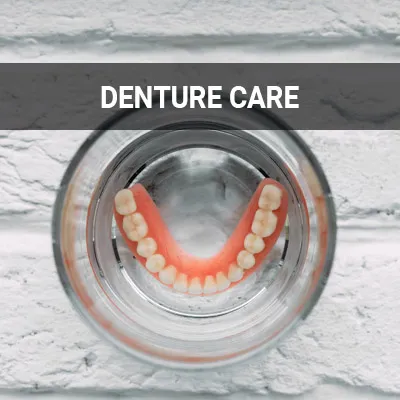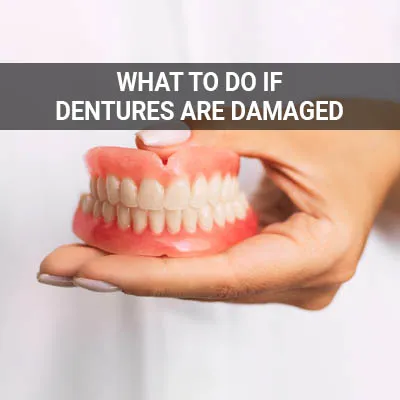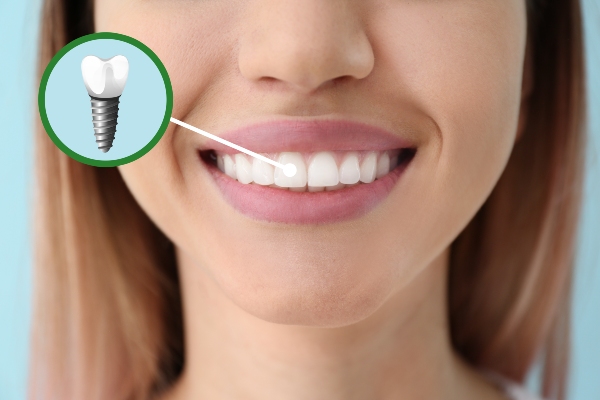Denture Adjustments and Repairs Los Angeles, CA
Denture adjustments and repairs are procedures performed to maintain and keep dentures in good condition. While dentures are a functional and reliable method of replacing missing teeth, sometimes, minor damage or a change in fit can decrease comfort. Getting necessary repairs and adjustments as soon as possible is essential to keeping dentures in good condition for longer.
Denture adjustments and repairs are available at Dr. Robert B Tamaki, DDS in Los Angeles and the surrounding area. If your dentures sustain damage or simply no longer fit well, do not wait to get in touch with our qualified dental team. Call us at (310) 402-0156 to schedule an appointment or learn more about our services.
The Repair Process and Expected Length of Time
The repair process will depend on the type of damage the denture has sustained. For example, if a part of the denture is missing, a laboratory technician can repair it by creating a mold of the original denture attachment. On the other hand, if a patient has saved the broken-off piece, it may be possible to glue it back onto the device. Other repairs, such as a denture that has split in two, require more intensive repair. This type of damage will require the two pieces to be glued together and repaired by adding another protective layer of acrylic resin.
It may also be necessary to insert a piece of metal through both pieces before gluing them together. In many cases, denture repairs can take as little as a day to complete since patients need them repaired as soon as possible. Our team will carefully assess the damage to provide patients with an estimated repair timeline.
“The repair process will depend on the type of damage the denture has sustained.”
Common Types of Denture Repairs
The common types of denture repairs include denture relines, rebasing, and adjustments. A denture reline involves resurfacing parts of a denture that have worn down or become damaged. A soft reline adds a liquid polymer into a denture to add cushion and make it more comfortable. A hard reline reshapes the damaged portion of a denture with a resin material that hardens like a denture base, resulting in a more permanent repair than soft relines.
A denture rebase involves replacing the acrylic bottom of a denture to make it more stable without deconstructing the entire prosthetic. It is a beneficial repair for older dentures that have sustained a fracture. Denture readjustments are when a person has their dentures adjusted to ensure a proper. People with dentures that have worn down or experienced changes in their facial structure should have a denture adjustment. This repair prevents dentures from loosening or shifting and causing discomfort.
“The common types of denture repairs include denture relines, rebasing, and adjustments.”
Signs Your Dentures May Need Repairs or Adjustments
Dentures generally need repairs after sustaining damage. Even when dentures are in good condition, adjustments may be needed if the undamaged dentures no longer fit well due to changes in the jawbone, gums, or remaining natural teeth. Recognizing these early signs of required maintenance is important to return to wearing dentures comfortably as soon as possible. Early signs of needing dental maintenance can include:
- Broken or loose replacement tooth: Any issues with replacement teeth should be addressed promptly. A dentist can easily solve this problem. Avoid chewing with a denture whose structure is unsound since this can lead to further breakage and possible mouth injury.
- Cracked or chipped teeth or base: Cracks or chipping can result from biting down on hard foods or dropping the dentures. While this defect may not render the denture unwearable, it needs a prompt fix. In addition to further deterioration, cracks and chips can provide havens for bacterial growth.
- Discomfort while chewing: Chewing with dentures often feels different from using natural teeth. However, after an initial adjustment period, it should not be uncomfortable. Pressure or pain while eating can mean the dentures need adjustment.
- Pain or pressure: These sensations in the mouth can indicate a damaged denture surface. They can also arise if the dentures no longer fit properly. Ignoring this sign can lead to more serious problems later.
- Persistent odor: Following a dentist’s care instructions should get rid of smells. If it does not, this can mean a hidden crack where bacteria are growing. A dentist can identify and fix any issue causing a persistent odor.
Regular check-ups can help address issues requiring denture adjustments and repairs. The American College of Prosthodontists recommends denture wearers visit the dentist at least once a year. Individual patients may receive a recommendation to come in more frequently.
“Even when dentures are in good condition, adjustments may be needed if the undamaged dentures no longer fit well due to changes in the jawbone, gums, or remaining natural teeth.”
Check out what others are saying about our dental services on Yelp: Denture Adjustments and Repairs in Los Angeles, CA
What to Do About Stains on Dentures
Using appropriate denture care routines goes a long way toward keeping them clean. An article in the Journal of Applied Oral Science points out that regular brushing and denture cleansing solutions are necessary to get rid of harmful microbes. A proper cleaning routine will keep the mouth healthy and prevent stains from occurring. However, sometimes stains persist. While many people reach for regular tooth whitening products, it is important to know that they are not appropriate for dentures and can even damage them.
Our team can help with persistent stains by performing an in-office cleaning or providing a specialty cleaning product that is effective and denture-safe. To minimize staining, rinse the dentures immediately after ingesting substances such as coffee or wine that commonly cause stains. Seeing a dentist according to the recommended schedule, closely following denture care instructions, and seeing a dentist are some other ways to keep dentures in great condition.
“To minimize staining, rinse the dentures immediately after ingesting substances such as coffee or wine that commonly cause stains.”
Questions Answered on This Page
Q. What are the benefits of denture adjustments and repairs?
Q. What is the denture repair process?
Q. What are the common types of denture adjustments?
Q. When should a patient see the dentist for an adjustment?
Q. What to do about stains on dentures?
People Also Ask
Q. What should new denture wearers expect during the first 30 days?
Q. How do I clean my dentures?
Q. What is a partial removable denture for one missing tooth?
The Benefits of Denture Adjustments and Repairs
Seeing the dentist for denture adjustments and repairs will help keep them in good condition and make them more comfortable. Our team can direct you to the necessary procedures to fix damaged or poorly fitting dentures. These are a few of the benefits of denture adjustments and repairs:
- Avoid Expensive Issues. A trained professional can repair minor damage easily. However, ignoring an issue may lead to more significant problems. This may mean a major repair or replacing the dentures.
- Enjoy Comfortable Dentures. Dentures should sit comfortably in the mouth. Poorly fitting dentures can put undue pressure on the gums and cause discomfort. An adjustment can often fix these issues.
- Maintain Better Oral Health. Loose dentures may cause sores in the mouth. Also, they make maintaining good oral hygiene harder. Denture adjustments and repairs are part of good oral health.
“Seeing the dentist for denture adjustments and repairs will help keep them in good condition and make them more comfortable.”
Frequently Asked Questions About Denture Adjustments and Repairs
Q. Can I fix my dentures at home?
A. Even a seemingly simple fix is better left to a qualified professional. Attempts to make denture adjustments and repairs at home often cause damage that can take longer to repair or even necessitate a replacement. People who use over-the-counter denture repair kits should follow instructions to the letter and be aware that this is not a permanent solution but a stopgap measure until a visit to the dentist is possible.
Q. How can I reduce the risk of cracking or chipping my dentures?
A. Chips and cracks are common reasons patients need denture adjustments and repairs. Handle and clean dentures over a soft surface such as a towel, never over the sink or countertop. Avoid biting down on hard foods that can cause damage.
Q. Is there any way to completely avoid denture adjustments and repairs?
A. Most patients end up needing to see a dentist for repairs or adjustments at some point. Following proper care routines can cut down on this necessity. However, normal wear and tear and changes to the shape of the mouth can still make it necessary to get adjustments or repairs.
Q. Can a damaged denture be worn if it is not uncomfortable?
A. While comfort is a major factor, there are other reasons to seek prompt help for damaged dentures. Uneven surfaces or a bad fit can gradually cause irritation, sores, and even infections in the mouth. It is preferable to get denture adjustments and repairs before a small problem gives rise to serious issues.
Q. Can bleach be used to get rid of stains on dentures?
A. Modifying dentures can cause minor speech and eating issues. However, these will go away with a little practice. Properly-fitting and well-maintained dentures become more comfortable to eat and speak with over time.
Q. Where are denture adjustments and repairs available?
A. The Mayo Clinic warns against using products containing bleach on dentures. Bleach can weaken the structure and degrade the materials of the dentures. A dentist can help with stains, as well as with any other necessary adjustments and repairs.
Dental Terminology
Learn More About Denture Adjustments and Repairs
Denture adjustments and repairs can help many patients with their replacement teeth. Our practitioners are happy to discuss what modifications may be necessary for your dentures. Call Dr. Robert B Tamaki, DDS at (310) 402-0156 to set up an appointment and learn more.
Helpful Related Links
- American Dental Association (ADA). Glossary of Dental Clinical Terms. 2024
- American Academy of Cosmetic Dentistry® (AACD). Home Page. 2024
- WebMD. WebMD’s Oral Care Guide. 2024
About our business, license, and website security
- Dr. Robert B Tamaki, DDS was established in 1985.
- We accept the following payment methods: Cash, CareCredit, Check, MasterCard, and Visa
- We serve patients from the following counties: Los Angeles County
- We serve patients from the following cities: Los Angeles, Santa Monica, Venice, Marina Del Rey, Redondo Beach, Hermosa Beach, Manhattan Beach, and Westchester
- CA (License #DDO-33386). View License Information and Specifics
- National Provider Identifier Database (1568559011). View NPI Registry Information
- Healthgrades. View Background Information and Reviews
- Norton Safe Web. View Details
- Trend Micro Site Safety Center. View Details
Back to top of Denture Adjustments and Repairs











